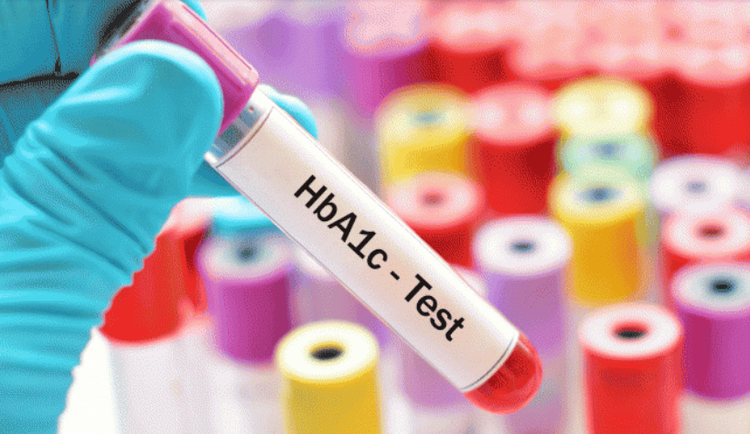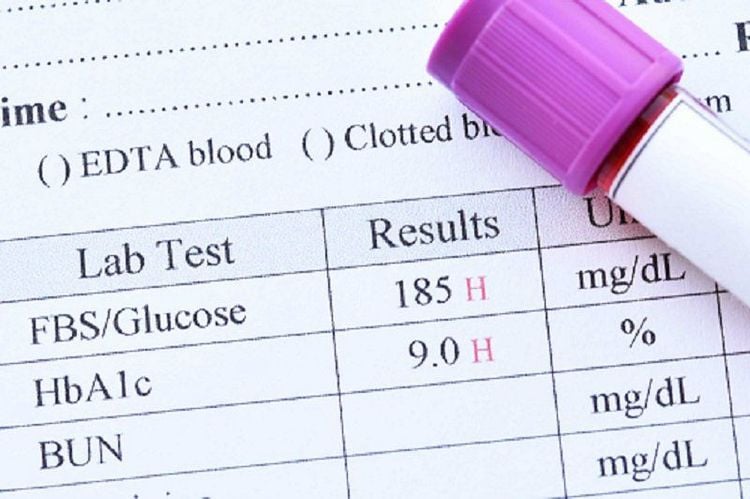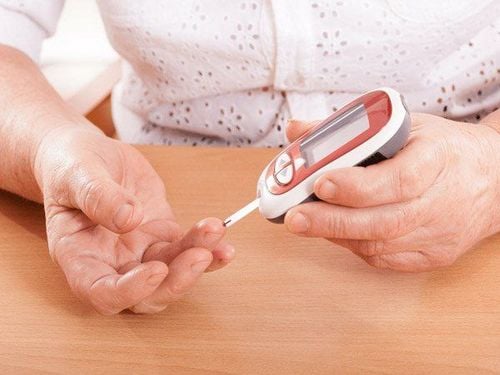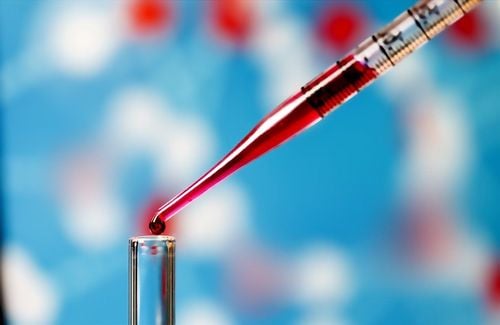This is an automatically translated article.
The article was professionally consulted by Doctor Tran Quoc Tuan - Emergency Resuscitation Doctor - Emergency Resuscitation Department - Vinmec Phu Quoc International General HospitalIn diabetes management, the goal of controlling the A1c index plays an important role to ensure that the occurrence of dangerous complications is delayed, and the overall health of the patient is improved.
1. Summary of HbA1c
1.1 What is the A1c test? A1c test is also known as Hemoglobin A1c test, HbA1c test, Glycohemoglobin test, Glycated Hemoglobin test. About the principle of the test, hemoglobin is the protein in red blood cells, responsible for transporting oxygen throughout the body. When blood glucose is high, some of the glucose binds to hemoglobin. Glucose binds to hemoglobin A, forming glycated hemoglobin (HbA1c).The A1c test is a blood test used to measure average blood sugar levels over a period of 2 - 3 months. Because red blood cells live for about 120 days (4 months), the results at the time of the test will show a direct link between the A1c reading and the average blood sugar level for the previous 4 months or longer.
A1c test is indicated to check the stable level of blood sugar in diabetic patients. In addition, it is used in the initial diagnosis of type 2 diabetes (not for use in the diagnosis of type 1 diabetes).
1.2 Values of the A1c Index HbA1c test results, expressed as a percentage, indicate the amount of hemoglobin that glucose binds in a person's blood. For diagnosis, the test results will give the following value scales:
Normal: HbA1c index below 5.7%; Pre-diabetes: HbA1c index 5.7 - 6.4%; Diabetes: HbA1c level of 6.5% or higher. However, a high HbA1c test result does not necessarily confirm the diagnosis of diabetes. The doctor will perform additional blood sugar testing for the patient. If the blood glucose level is 200 mg/dl, it can be concluded that the person has diabetes.
A number of factors, medical conditions can change the results of the A1c test. Such conditions include: Liver disease, kidney disease, blood loss (or recent blood transfusion), certain blood disorders such as sickle cell anemia, low blood iron levels, illness, stress, etc. ..

Trong quản lý bệnh tiểu đường, mục tiêu kiểm soát chỉ số A1c đóng vai trò quan trọng để đảm bảo làm chậm sự xuất hiện của những biến chứng nguy hiểm
2. A1c control goals in diabetes management
Diabetes is a chronic disease that cannot be cured, except for some cases such as drug-induced diabetes, gestational diabetes,... The goal in diabetes treatment is to prevent and slow down the occurrence of diabetes. large - small vascular complications, improve the overall health of the patient and treat the complications.The goals of diabetes management are specified by the following indicators: Control blood sugar (HbA1c), control blood lipid components, regulate body weight and treat high blood pressure. In which, assessing long-term blood sugar control through the A1c index is the main goal of diabetes control and treatment.
The goal of controlling the A1c index in diabetes management is as follows:
The common goal for both type 1 diabetes and type 2 diabetes: HbA1c index < 7%; HbA1c test needs to be done 2-4 times/year; Testing for HbA1c should be done in the same laboratory for easy comparison. If 2 consecutive tests 3 months apart but the HbA1c index > 8%, it is necessary to change the treatment method. Just 1% reduction (from 8% to 7%) can reduce the risk of small vessel complications such as kidney disease, retinopathy, neuropathy, ... caused by diabetes by up to 35%. In conclusion, a person is not diagnosed with diabetes if the A1c is less than 5.7%. If the index is 6.5% or more, it will be diagnosed with diabetes, which needs to be treated with measures such as lifestyle changes, dietary adjustments, exercise, medication,... During the process. During treatment, patients should try to keep HbA1c below 7%. However, each person will have a different goal of controlling A1c depending on factors such as age, type of treatment,...

Nếu chỉ số 6,5% trở lên, bạn sẽ được chẩn đoán mắc bệnh tiểu đường
Currently, Vinmec International General Hospital is providing a Diabetes Screening Package, including a Quantitative HbA1c test, to help patients detect the disease early and improve treatment efficiency.
Why should you choose the Diabetes Screening Package at Vinmec International General Hospital?
Simple and quick procedure. Enthusiastic advice and support, reasonable and convenient examination process. Comprehensive facilities, including a system of clinics and consultations, blood collection room, dining room, waiting area for customers... The medical staff has high professional qualifications, style. Professional, caring way of working.
Please dial HOTLINE for more information or register for an appointment HERE. Download MyVinmec app to make appointments faster and to manage your bookings easily.













